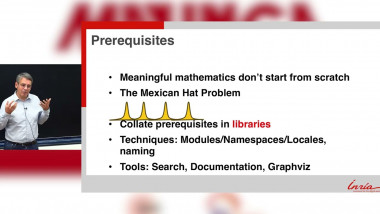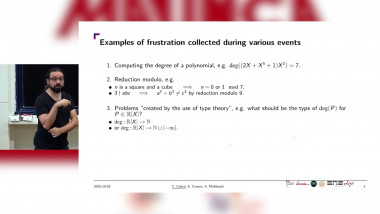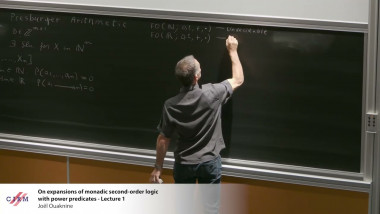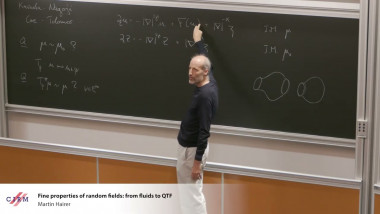Appears in collection : Combinatorics and Arithmetic for Physics : Special Days
Game semantics is the art of interpreting formulas (or types) as games and proofs
(or programs) as strategies. In order to reflect the interactive behaviour of pro-
grams, strategies are required to follow specific scheduling policies. Typically, in
the case of a sequential programming language, the program (Player) and its envi-
ronment (Opponent) play one after the other, in a strictly alternating way. On the
other hand, in the case of a concurrent language, Player and Opponent are allowed
to play several moves in a row, in a non alternating way. In the two cases, the
scheduling policy is designed very carefully in order to ensure that the strategies
synchronise properly and compose well when plugged together. A longstanding
conceptual problem has been to understand when and why a given scheduling
policy works and is compositional in that sense. In this talk, I will introduce the
notion of template game and exhibit a number of simple and fundamental combi-
natorial properties which ensure that a given scheduling policy defines (indeed) a
monoidal closed bicategory of games, strategies and simulations. The notion of
template game will be illustrated by constructing two game models of linear logic
with different flavours (alternating and asynchronous) using the same categorical
combinatorics, performed in the category of small 2-categories.
















